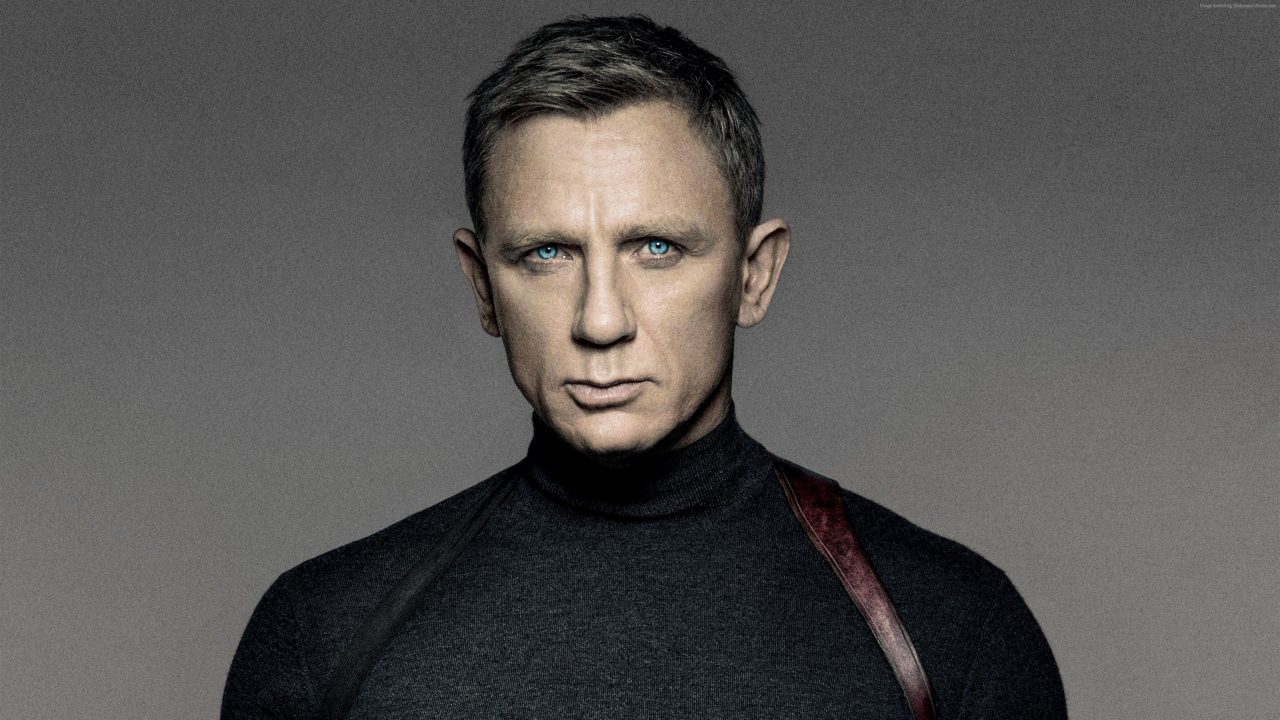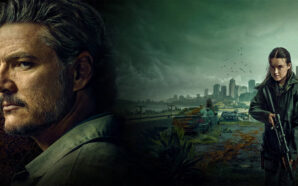I’ve been using the word “era” to describe the different spans of time that actors have played the character of James Bond, like “the Moore era” or “the Dalton era”, but rarely do they feel completely and totally different from one another. There’s a subtle progression from one phase to the next, often doing so too late. The Daniel Craig films on the other hand definitely deserve to be referred to as a new era of the franchise. After the Brosnan films lost their way and threatened the future of the franchise, the series needed reinvention. That thought process came post-9/11 and at a time when Bourne and Bauer were the new action stars. Darker, grittier and more violent characters were popular and the Bond series headed down that direction head first. The very type of film they were aiming toward radically shifted too; no more casual blockbuster entertainment, the producers were aiming for something higher. And when the films are trying to be more than gentleman spy escapist thrillers you have to hold them to that higher standard they are aiming for. They no longer just have to be good Bond films. They have to be good films. Period.
Casino Royale (2006)
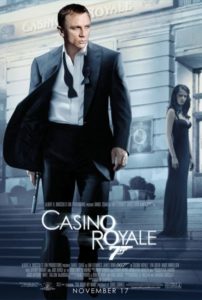 What better way to start a rebooted continuity than with an adaptation of the very first James Bond novel but with a very modern twist. That balance between new and old is what defines the film, and its successors, and Casino Royale absolutely nails it. The film is essentially an origin story but manages to introduce all the elements of the Bond formula in a natural way while still playing into them a fair amount. This isn’t like the worst parts of Solo: A Star Wars Story where Han ponders aloud that he’s going to need a nickname for Chewbacca but rather it’s subtler, whether it’s small moments like the opening gun-barrel sequence or much larger aspects like why Bond is the way he is with women and death. Despite James truly becoming the character we know and love at the very end of the film when he utters “Bond. James Bond” for the first time as the classic theme music plays, he’s familiar enough throughout to constitute it being a Bond film rather than just a set up for one. It’s not some flamboyant action film like Die Another Day but a deep character study that works extremely well as a reintroduction to the character. It’s amazing the level of reinvention they manage to perform in just the four years between Pierce Brosnan’s last film and Casino Royale.
What better way to start a rebooted continuity than with an adaptation of the very first James Bond novel but with a very modern twist. That balance between new and old is what defines the film, and its successors, and Casino Royale absolutely nails it. The film is essentially an origin story but manages to introduce all the elements of the Bond formula in a natural way while still playing into them a fair amount. This isn’t like the worst parts of Solo: A Star Wars Story where Han ponders aloud that he’s going to need a nickname for Chewbacca but rather it’s subtler, whether it’s small moments like the opening gun-barrel sequence or much larger aspects like why Bond is the way he is with women and death. Despite James truly becoming the character we know and love at the very end of the film when he utters “Bond. James Bond” for the first time as the classic theme music plays, he’s familiar enough throughout to constitute it being a Bond film rather than just a set up for one. It’s not some flamboyant action film like Die Another Day but a deep character study that works extremely well as a reintroduction to the character. It’s amazing the level of reinvention they manage to perform in just the four years between Pierce Brosnan’s last film and Casino Royale.
In my eyes there are two stars of the film: Daniel Craig and director Martin Campbell. Craig is clearly a more action-orientated Bond than what we’ve seen before and he’s looked on as quite a brutish character. In some ways he is but I’d forgotten how charming and humorous his version of the character is. He’s incredibly tough yet more vulnerable than we’ve ever seen Bond before, the armour of his tough attitude and suppressed feelings and emotions falling off him throughout the running time only to be repositioned stronger than ever by the film’s emotional climax. I think it’s Craig’s best performance and definitely his most energetic, although that might be by design. We also get phenomenal directing from Martin Campbell who takes the action in a kinetic and modern direction while also keeping style and pace for the quieter scenes set around the poker table. The film revolves around Bond playing poker against Mads Mikkelsen’s Le Chiffre, a banker for terrorists, while stopping bombers and falling in love with Vesper Lynn who ultimately breaks Bond’s heart and turns him into the character we know when she is blackmailed to work against him. It’s great to see the casino be a major part of the plot rather than just be a tick on a checklist like many other Bond films and Campbell directs the poker scenes brilliantly; I have little idea how to play the game but I understand every move the players make. Casino Royale will always be one of my favourites for nostalgic reasons (it was the first Bond film I saw at the cinema) but also because of the little reason that I can’t find any negatives about it at all. It’s a perfect way to restart the franchise.
Quantum of Solace (2008)
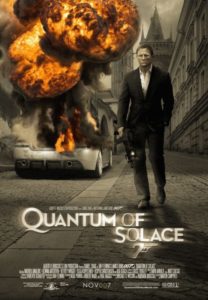 The word that comes to mind when I think of Quantum of Solace is “aggression”. Not only when it comes to Bond’s actions but also in terms of pacing and editing and the movie suffers because of it. The film picks up almost immediately after Casino Royale and follows Bond as he uncovers the hidden organisation known as Quantum who Vesper was secretly working for in the previous film. The problem is that the plot and character development that made Casino Royale so great rarely make an appearance in the film and, for all its clinging onto the previous film as the first direct sequel in the Bond series, it fails in comparison. The film tries of ape off most of the story, emotion and character work from Casino Royale without putting much effort in itself, feeling like a 15-minute epilogue stretched out over 105 minutes with a fairly dull plot and many, many actions sequences to fill out the runtime. The fast pace works against the film because we spend little time with Bond being Bond. He has very little time to be charming or even likable and barely speaks for large portions of the film. It’s interesting to have a Bond film where we learn Bond’s intentions merely through his actions and expressions – something Craig does well and he channels Steve McQueen throughout the film – but after the intense character study of Casino Royale it feels hollow and becomes a rather basic revenge thriller with Bond’s character left in a holding pattern throughout.
The word that comes to mind when I think of Quantum of Solace is “aggression”. Not only when it comes to Bond’s actions but also in terms of pacing and editing and the movie suffers because of it. The film picks up almost immediately after Casino Royale and follows Bond as he uncovers the hidden organisation known as Quantum who Vesper was secretly working for in the previous film. The problem is that the plot and character development that made Casino Royale so great rarely make an appearance in the film and, for all its clinging onto the previous film as the first direct sequel in the Bond series, it fails in comparison. The film tries of ape off most of the story, emotion and character work from Casino Royale without putting much effort in itself, feeling like a 15-minute epilogue stretched out over 105 minutes with a fairly dull plot and many, many actions sequences to fill out the runtime. The fast pace works against the film because we spend little time with Bond being Bond. He has very little time to be charming or even likable and barely speaks for large portions of the film. It’s interesting to have a Bond film where we learn Bond’s intentions merely through his actions and expressions – something Craig does well and he channels Steve McQueen throughout the film – but after the intense character study of Casino Royale it feels hollow and becomes a rather basic revenge thriller with Bond’s character left in a holding pattern throughout.
So, the story and characters are weak but what about the action? Sadly, that’s a major problem too. Inspired by the huge success of the rival Jason Bourne films, Quantum of Solace jumps head first into the realm of migraine-inducing, impossible-to-follow, quick-cutting, handheld shaky-cam action sequences. Where the Bourne films succeed in this regard, Bond fails and just makes the action difficult to watch. The editing and pace also translate to the rest of the film where we finish one scene and are suddenly propelled into another without time to take in what little plot there is. Although I do like the sequence set at the opera, the editing there is very powerful. I also like how the film treats M. Her scenes are great and I like her distrust of Bond, although she does quite randomly start trusting him again at the end of the film without a good enough reason. For a few fleeting moments you think the film is going to go for the depth of the last entry with the conversations about forgiveness Bond has with Mathis but they are few and far between and a reprise of the frustrating action is never far behind.
I think that if the film had 30 minutes of character-focused scenes implanted, and if the action was re-edited, then the film would actually be pretty good but I guess we should be happy that it’s not a total disaster. Production on the film took place during the 2008 writer’s strike which caused Craig and director Marc Forster to have to rewrite the film themselves during filming, and Forster had little time to finish the edit to hit the announced released date, so considering that it could have turned out much worse. Overall it feels like the producers thought the origin tale of Casino Royale worked so well that they should continue it here but they ended up simply reiterating the end of the last film rather than doing something new. It should have been a huge part of the new Bond canon but ends up feeling very inconsequential.
Skyfall (2012)
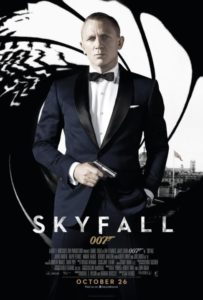 The more I watch and think about Skyfall, the more I realise it’s a Bond film that’s not Bond’s film. Which is strange considering Skyfall offers the largest glimpse into Bond’s past to date. But no, it’s M’s film. Everything we learn about Bond is through the motherly relationship he has with M and the same can be said for the villain, Silva, too. They are two sides of the same coin. Two agents that were left for dead by M for the sake of a mission and fell off the grid. Bond returns six months later, realising he can’t leave his life as a paid assassin behind and that M was just doing her job. Silva instead seeks revenge and his near-death experience leaves mental and physical scars. M is at the centre of all of it; targeted by Silva and protected by Bond while she thinks about her past deeds and the life she’d led. This isn’t just Bond on a mission; it’s personal. And his relationship with M tears off his armour once again and reveals more of his backstory than we’ve ever gotten before, from the fate of his parents to the finale set at his childhood home of Skyfall. In this regard, and others, the film is unique in the franchise and yet it feels incredibly familiar. Even more so than the past Craig efforts.
The more I watch and think about Skyfall, the more I realise it’s a Bond film that’s not Bond’s film. Which is strange considering Skyfall offers the largest glimpse into Bond’s past to date. But no, it’s M’s film. Everything we learn about Bond is through the motherly relationship he has with M and the same can be said for the villain, Silva, too. They are two sides of the same coin. Two agents that were left for dead by M for the sake of a mission and fell off the grid. Bond returns six months later, realising he can’t leave his life as a paid assassin behind and that M was just doing her job. Silva instead seeks revenge and his near-death experience leaves mental and physical scars. M is at the centre of all of it; targeted by Silva and protected by Bond while she thinks about her past deeds and the life she’d led. This isn’t just Bond on a mission; it’s personal. And his relationship with M tears off his armour once again and reveals more of his backstory than we’ve ever gotten before, from the fate of his parents to the finale set at his childhood home of Skyfall. In this regard, and others, the film is unique in the franchise and yet it feels incredibly familiar. Even more so than the past Craig efforts.
The film was released on the franchise’s fiftieth anniversary, celebrating the date with numerous references to previous films and bringing back characters like Q and Moneypenny. It also puts a twist on many of the familiar elements like the villain having to infiltrate Bond’s lair during the finale rather than the more frequently-seen opposite. This plays into the constant comparisons between hero and villain and interestingly we don’t see Silva until a good hour into the film, but while we are understanding Bond’s headspace after his failed mission we are secretly understanding Silva’s at the same time. He’s a twisted version of Bond. In many ways it feels like Batman and The Joker which is no accident because the film has many similarities to The Dark Knight.
On the more technical side, the film is probably the best looking of the entire series thanks to legendary cinematographer Roger Deakins. The scenes set in Shanghai feel like a prelude to his excellent work on Blade Runner 2049. Sam Mendes directs the film and does away with the quick cuts of Quantum of Solace and instead shoots action in wide shots and gives the film a classical look. I was shocked to learn that Stuart Baird edited the film; he’s by far a better editor than director considering the last film he helmed was Star Trek: Nemesis. Craig himself gives a more tired and aged performance than his previous films. At times it feels like he’s a completely different actor but considering the narrative, and the implied time jump between films, it works, although I wish there was a little more humour in the performance. At one point in the film, M describes Bond as having “exemplary British fortitude” and that’s the phrase that comes to mind when thinking of Skyfall as a whole. Casino Royale felt a bit grimy and dirty while Skyfall feels classy and undeniably British. It’s one of the very best films of the series and I feel like the impact of its legacy will be felt for longer than its contemporaries.
Spectre (2015)
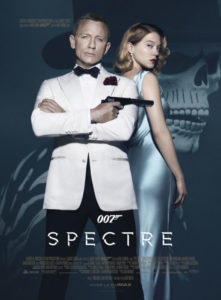 Spectre is to Skyfall what Quantum of Solace is to Casino Royale. It tries to take the style and tone, and in some ways the story, of its predecessor and strives to continue it. In a lot of ways, it works… until it really doesn’t. But let’s stay with the positives for now. I really like the majority of the film. The reintroduction of criminal organisation SPECTRE, its leader Blofeld and the slow pace of Bond’s investigation are all great. I like the way it links to previous films too, with Mr White returning for his final appearance. Sam Mendes directs the film brilliantly and Hoyte Van Hoytema’s cinematography is stunning, fittingly giving the film a darker look than Skyfall. The scene with Bond infiltrating a SPECTRE meeting is one of my favourite scenes of the whole series and, for the most part, the action is brilliant with the opening sequence and the train fight being highlights. And then it all kind of falls apart.
Spectre is to Skyfall what Quantum of Solace is to Casino Royale. It tries to take the style and tone, and in some ways the story, of its predecessor and strives to continue it. In a lot of ways, it works… until it really doesn’t. But let’s stay with the positives for now. I really like the majority of the film. The reintroduction of criminal organisation SPECTRE, its leader Blofeld and the slow pace of Bond’s investigation are all great. I like the way it links to previous films too, with Mr White returning for his final appearance. Sam Mendes directs the film brilliantly and Hoyte Van Hoytema’s cinematography is stunning, fittingly giving the film a darker look than Skyfall. The scene with Bond infiltrating a SPECTRE meeting is one of my favourite scenes of the whole series and, for the most part, the action is brilliant with the opening sequence and the train fight being highlights. And then it all kind of falls apart.
The problems stem from the writers trying to make everything personal to Bond because it worked so well in Skyfall and the latter parts of Casino Royale. Madeline Swann can’t just be a regular Bond girl but instead has to be the new Vesper character – complete with a pithy back-and-forth conversation on a train – who Bond falls madly in love with, despite lack of chemistry, and leaves MI6 to run off with her in the end, completely undermining the end of Casino Royale and the decision to return to MI6 in Skyfall. While I enjoy Christoph Waltz as Blofeld, I absolutely hate that they made him Bond’s adoptive brother. Making everything so personal to Bond just does not work. It barely even makes sense. Bond getting caught in the web of an organisation much larger than him (“a kite dancing in a hurricane”) works but Blofeld makes it sound like everything that has happened to Bond, from Vesper’s death to M’s, was purposeful revenge (“the author of all your pain”). So Blofeld founded SPECTRE to cause Bond pain? Even though according to Casino Royale and Quantum of Solace, SPECTRE was a huge organisation before James was a 00 agent? Retroactively changing the story of Casino Royale and Skyfall to have Blofeld be behind everything is a mistake and takes away from the tragedy of Vesper and M’s deaths. It turns out it wasn’t their decisions and deeds that led to their deaths but rather just Blofeld’s revenge and I hate that idea. Oh, and the final 30 minutes are dull and anticlimactic.
I hope that Spectre was a warning to the writers, and future writers, that future films don’t need to always have immense personal stakes for Bond and tie into his past somehow. That can work but there’s only so much mileage you can get from that sort of storytelling in Bond. After watching every Bond film you realise that these character study films are not enough to sustain the franchise and the classic Bond formula is a key part of how the series has survived and thrived for more than fifty years. Bond should be fresh and ever-changing with new aspects and personal investment but he shouldn’t always be the focus of the villain’s plot and the key to the entire narrative.
The continuity of the Daniel Craig Bond films offers an interesting hurdle in the future. For the first time there is a distinct canon to which all his films connect and it’ll be fascinating to see how the producers deal with recasting in the future. Will the new actor be the same James Bond as Daniel Craig or will Craig’s Bond have to retire or die and be replaced by a new 00 agent who takes up the mantle of James Bond?
So, with Craig and his films covered, that’s the end of this “Bond Retrospective” series, right? Wrong. There are two more articles coming soon covering the unofficial Sean Connery Bond film Never Say Never Again and then a final ranking of every James Bond film to finish off the series. In the meantime, what are your thoughts on Daniel Craig as Bond and his four films? Let me know in the comments and geek out with me about TV, movies and video-games on Twitter @kylebrrtt.




